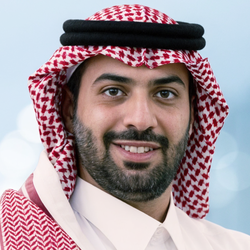Learning Activity Details
| Duration | 10, 4, 2 |
|---|---|
| Sessions | 8 Sessions , 10 Assessments |
| Course Location: | Recorded |
Select The Dates Of The Updated Scientific Valid Content Released By The Scientific Committee.
Speakers
Learning Activity Agenda:
|
Topic |
Duration |
Speaker |
|
Pre-Course
Assessment |
30 minutes |
|
|
Introduction
to Prevention in Medicine |
20 minutes |
Dr. Muath Alammar |
|
Assessment
of introduction of prevention Medicine |
15 minutes |
|
|
Prevention
of Cardiovascular Diseases |
19 minutes |
Dr. Muath Alammar |
|
Assessment
of Prevention of Cardiovascular Disease |
15 minutes |
|
|
Prevention
of Diabetes |
17 minutes |
Dr. Muath Alammar |
|
Assessment
Prevention of Diabetes |
15 minutes |
|
|
Prevention
of Osteoporosis |
21 minutes |
Dr. Muath Alammar |
|
Assessment
of Prevention of Osteoporosis |
15 minutes |
|
|
Prevention
of Cancer |
15 minutes |
Dr. Muath Alammar |
|
Assessment
of Prevention of Cancer |
15 minutes |
|
|
Prevention
of Breast Cancer |
17 minutes |
Dr. Muath Alammar |
|
Assessment
of Prevention of Breast Cancer |
15 minutes |
|
|
Prevention
of Colon Cancer |
13 minutes |
Dr. Muath Alammar |
|
Assessment
of Prevention of Colon Cancer |
15 minutes |
|
|
Overdiagnosis
in Medicine |
16 minutes |
Dr. Muath Alammar |
|
Assessment
of Overdiagnosis in Medicine |
15 minutes |
|
|
Post
course Assessment |
30 minutes |
|
Scientific Committee:
Target Audience:
- All Healthcare Practitioners
Learning Activity Objectives:
1- Illustrate a broad overview of prevention in healthcare, focusing on its importance and types.
2- Distinguish the role of prevention in reducing cardiovascular disease (CVD) risks.
3- Emphasis on how preventive measures can curb the rising prevalence of diabetes.
4- Demonstrate how to prevent osteoporosis through lifestyle, screening, and management.
5- Describe the importance of cancer prevention and early detection.
6- Discuss strategies for preventing breast cancer, focusing on risk factors, screening, and lifestyle changes.
7- Emphasis on the prevention of colon cancer through lifestyle changes, early screening, and management.
8- Explore the concept of overdiagnosis and its implications on healthcare.
Learning Activity Description:
Preventive healthcare is essential in addressing the growing burden of chronic diseases and promoting overall wellness. This course highlights the importance of prevention and early detection in reducing risks for cardiovascular disease, diabetes, osteoporosis, and various cancers.
By focusing on lifestyle modifications, screening, and evidence-based strategies, participants will gain practical tools to enhance health outcomes. The course also explores the concept of overdiagnosis and its implications, empowering attendees to foster a culture of prevention in their communities.
Learning Outcome:
By the end of this course, participants will be able to:
1. Explain the importance of prevention in healthcare.
2. Identify risk factors for major chronic diseases.
3. Recommend lifestyle changes and screening for disease prevention.
4. Advocate for early detection methods.
5. Understand and address the impact of overdiagnosis.
6. Promote preventive health practices within their communities.
Certificates
You have to attend all the recorded sessions and fill out the survey to obtain the certificate.

